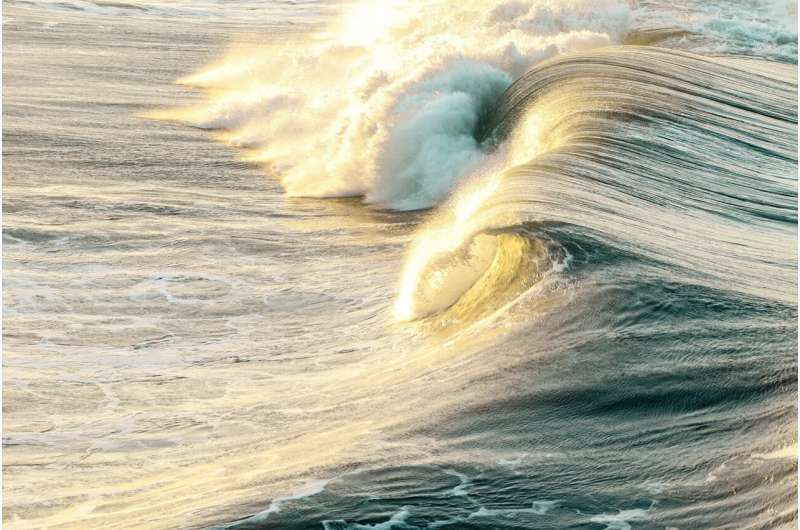Tropical fish… up north? How ocean physics alters water temperature and salinity

A study led by Woods Hole Oceanographic Institution scientists is explaining why warm and salty water along with warm water fish species, such as the deep-sea dwelling Gulf Stream flounder and Black Sea bass, were found far inshore in New England in the middle of winter 2017. How did this happen? Researchers say it is due to an intrusion of offshore water from the open ocean onto the Northeast U.S. Shelf, caused by eddies (a circular current of water) and wind. The findings were published this week in a paper co-authored by WHOI physical oceanographers Ke Chen, Glen Gawarkiewicz , and Jiayan Yang, published in the Journal of Geophysical Research: Oceans.
Using data collected by the commercial fishing industry, observations from Ocean Observatories Initiative's Coastal Pioneer Array, and a new high-resolution computer model, the authors found that offshore activity by eddies and upwelling wind work jointly to produce an intrusion of warm salty offshore water to the inner shelf. The cyclonic eddies near the shelf break create pressure gradients and provide favorable conditions for the intensification of the shelf break front, both processes driving intrusions of high-temperature, high-salinity offshore water onto the outer continental shelf. Subsequently, strong upwelling winds drove a rapid, bottom-intensified penetration composed of the unusual water mass from the cyclonic eddies. The results of this study highlight the importance of smaller scale cyclonic eddies and the intricacy of the relationship between multiple processes to drive significant ocean-altering events.
This study provides an improved understanding of mechanisms connecting the large-scale processes in the open ocean and variability in the coastal region. This work also explains the unusual catch of Gulf Stream warm water species in shallow regions near Block Island, RI.
More information: Ke Chen et al, Mesoscale and Submesoscale Shelf‐Ocean Exchanges Initialize an Advective Marine Heatwave, Journal of Geophysical Research: Oceans (2021). DOI: 10.1029/2021JC017927
Provided by Woods Hole Oceanographic Institution




















